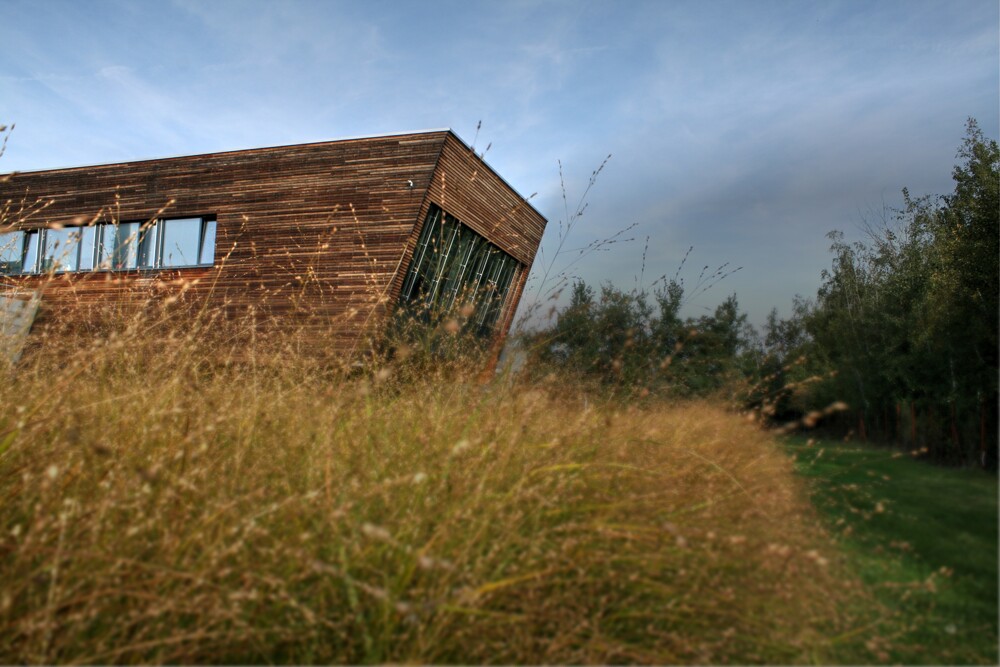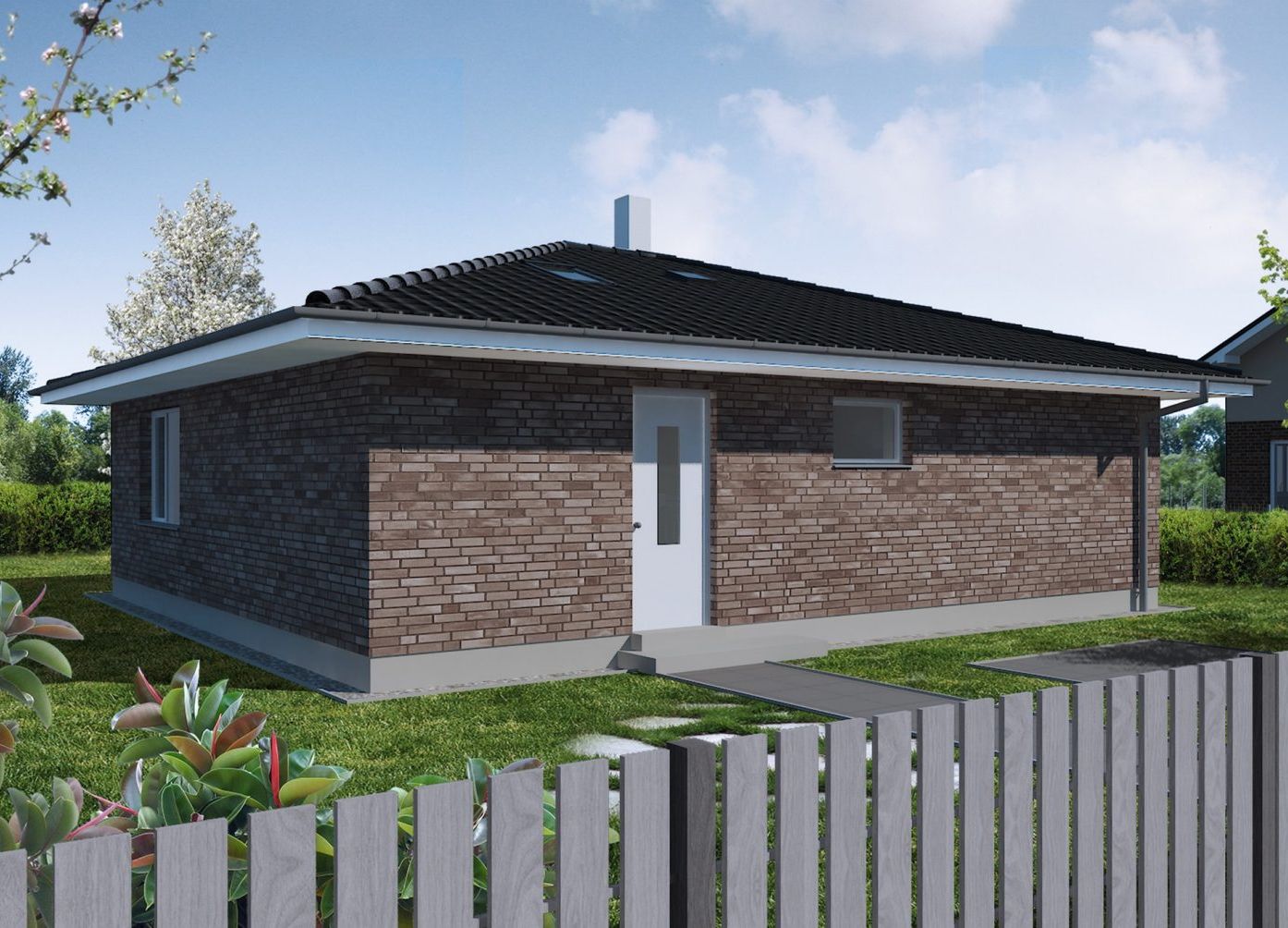

The Sustainable Building Research Team of the CTU UCEEB carried out a Life Cycle Assessment (LCA) of the Zina family house
project by Wienerberger. The resulting study provided the investor with detailed analysis results, including comments on how
to improve the project with respect to its environmental performance, particularly focusing on its carbon footprint. It also
revealed the fact that the material solution may not be the main issue.
The design of the Zina family house was assessed in three material options for the supporting structures, constructed of
either burnt brick, aerated concrete blocks or timber. The analysis was carried out using One Click LCA in accordance with
EN 15978 and the EU Level(s) methodology for sustainability assessment of buildings.
Through the analysis, we have identified the areas of most significant environmental impacts in terms of carbon footprint
that need the most attention for all material options of the project. We also suggested options for reducing the carbon footprint,
for example through the use of a higher proportion of recycled content in building materials (cement, steel, aluminium) or
other material solutions.
The almost identical results for all three house options demonstrated the need to address the issue of reducing the carbon
footprint of buildings more comprehensively and the impossibility of making quick and easy decisions in terms of promoting
and choosing only certain building materials.